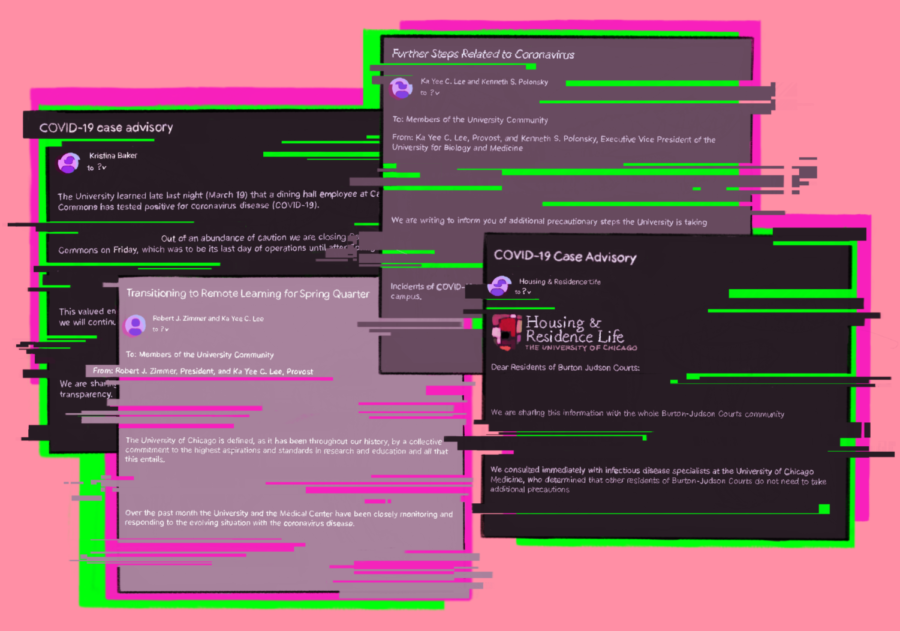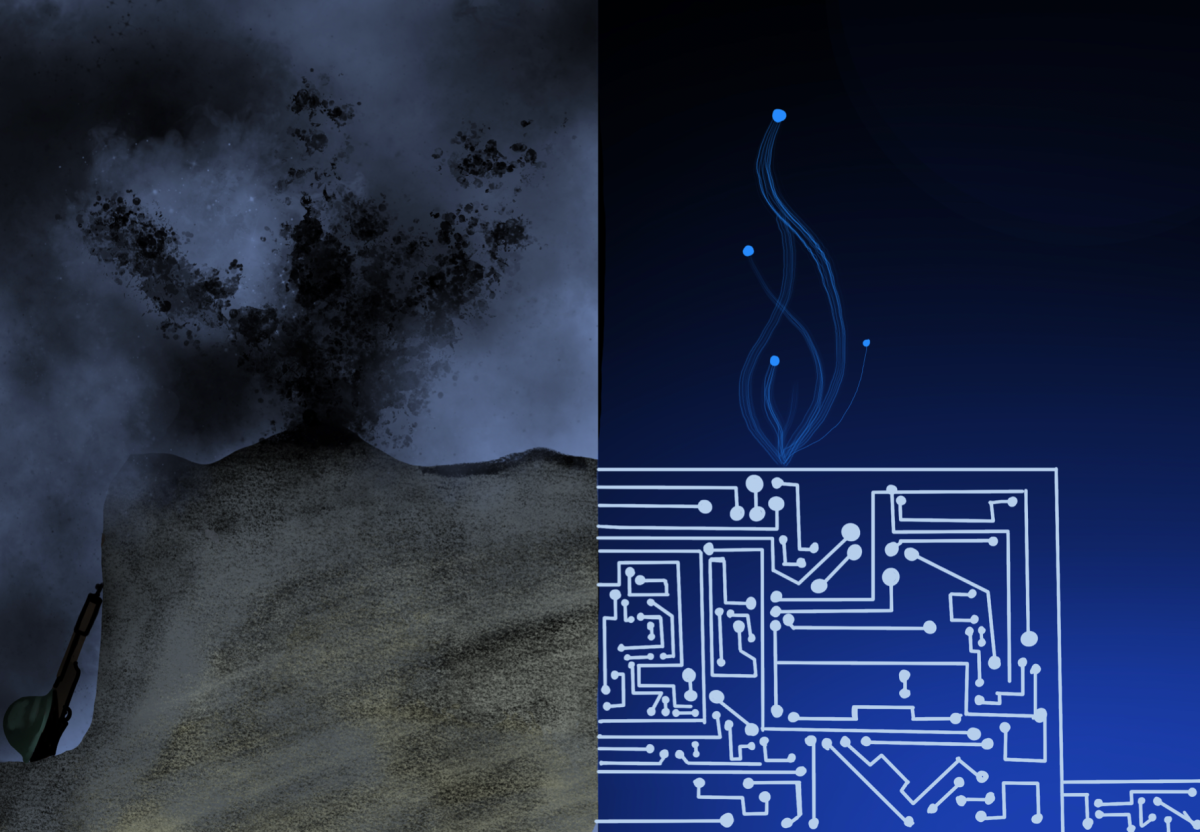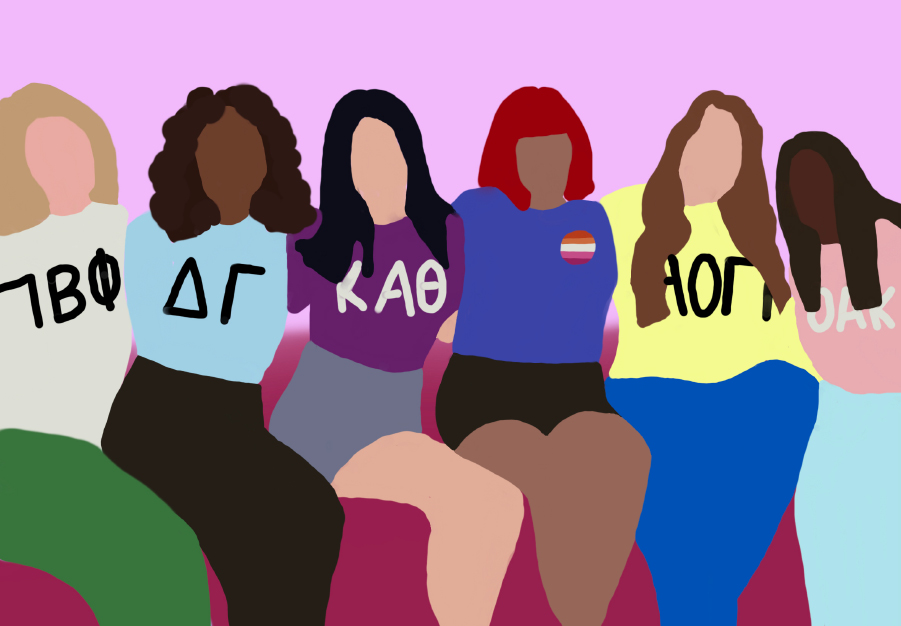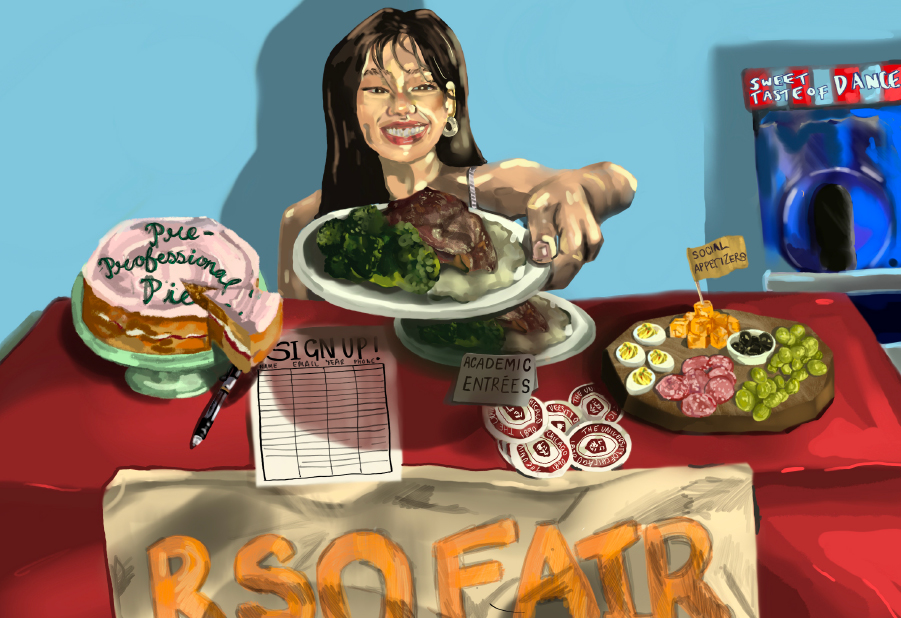At 8:30 a.m. on Friday, March 20, I walked up to Arley D. Cathey Dining Commons, intending to get breakfast before my 23-hour journey back home to India. It was closed. There was no explanation, just a notice that Bartlett and Baker were still open. I didn’t think anything of it; I just went back to my room, got my suitcases, and booked a Lyft to the airport.
At 9:39 a.m., I received an email—not from Provost Lee, like most of the emails regarding COVID-19 updates, but from someone named Kristina Baker. Cathey was shut down because one of the workers had tested positive for the virus. And unlike most of the emails regarding COVID-19, it wasn’t addressed to all members of the University community. Residents of Renee Granville-Grossman and Burton-Judson, the two residence halls nearest to Cathey, received it. But not all students of the University were informed, despite many being regular visitors of the dining hall. Parents were not informed either.
This highly selective communication from the University is concerning because it prevents the entire community from taking actions that could best protect itself. We cannot allow it to become a pattern. That a person in charge of handling food has had the disease in their system while being on duty affects all students at the University, and I can’t help but draw attention to the fact that the incident has not been handled with enough transparency. Alerting the entire campus for a single diagnosis may seem unnecessary; at the current infection rate, cases of COVID-19 on campus are not unexpected and could incite panic. However, staying true to the UChicago value of independent thinking, the community should be provided with all information regarding the pandemic, rather than only what the administration believes we will be able to handle. This would better aid us in making informed decisions on how best to protect ourselves.
This selectivity of information has real consequences. A friend of mine received the email because she was a resident of Renee Granville-Grossman. Her sister, who lives off-campus but frequently ate at Cathey, was not notified of anything—and had been in proximity to their parents since the news came out. And she was upset. Had the University informed her of the incident as well, she might have known to quarantine herself better to protect her family. Even still, she was fortunate to have been able to stay informed through her sister. Other students living off-campus, who have eaten at Cathey, may still be unaware. And if so, they are unaware of the risk they and their families might be at, all because of inconsistent communication from the University.
At around 6:45 p.m. on Friday, March 20, the community received an email from Provost Lee. Predominantly discussing the Illinois shutdown, it briefly mentioned, “Our campus has experienced additional cases of COVID-19 in recent days” toward its conclusion, but offered no clarifying details. And at 5:26 p.m. on Saturday, March 21, residents of Burton-Judson received an email that a resident of the dorm had tested positive for the virus; the University did not inform all members of its community who may have been exposed. The only residents who have been further notified are those that the University knows have had “close contact with the individual,” but similar to the case of the Cathey worker, this may not guarantee that all at-risk individuals have been informed.
The University has not since provided information about where and when additional cases on campus have developed, and its lack of communication regarding diagnoses is both irresponsible and alarming. These cases impact all of us because we don’t know to what degree we have been exposed to the virus. We don’t know whether we should have stayed behind and quarantined ourselves instead of returning home and potentially spreading it. We don’t know if our lives are in danger because of our exposure.
Perhaps it would be helpful to consider opening an opt-in channel of communication, formatted similar to the security alerts delivered by the Department of Safety and Security. This would broadcast all updates related to COVID-19 cases and precautions related to the University as soon as reports are processed. Rather than governing and gatekeeping information, providing the community with access to all information, well-sourced information, and informed suggestions would allow us to make educated decisions. An additional advantage of open broadcasting is that it would avoid panic caused by unofficial communication: Similar to the RH, Cathey, and Burton-Judson emails, any selective communication is likely to leak anyway, and it would be more efficient for the University to directly inform the broader community instead.
I would be remiss not to acknowledge that so far, UChicago has been handling the effects of the COVID-19 pandemic well, relative to other institutions of higher learning. Unlike Harvard and Syracuse, the University provided students with ample move-out notice. When students petitioned to have resident assistants paid during spring quarter, the University listened and offered them the opportunity to work remotely. Now, as the global crisis heightens, it is extremely important for UChicago to continue to take care of its community as best as it possibly can. A fundamental value of this institution has always been independent and educated thinking, but by assuming that we cannot handle certain information, the recent selectivity in communication prevents us from making critically-reasoned, educated decisions. We must be able to stay informed if our health is at risk so that we can take precautions to protect ourselves and the ones we love.
Manya Bharadwaj is a first-year in the College.








